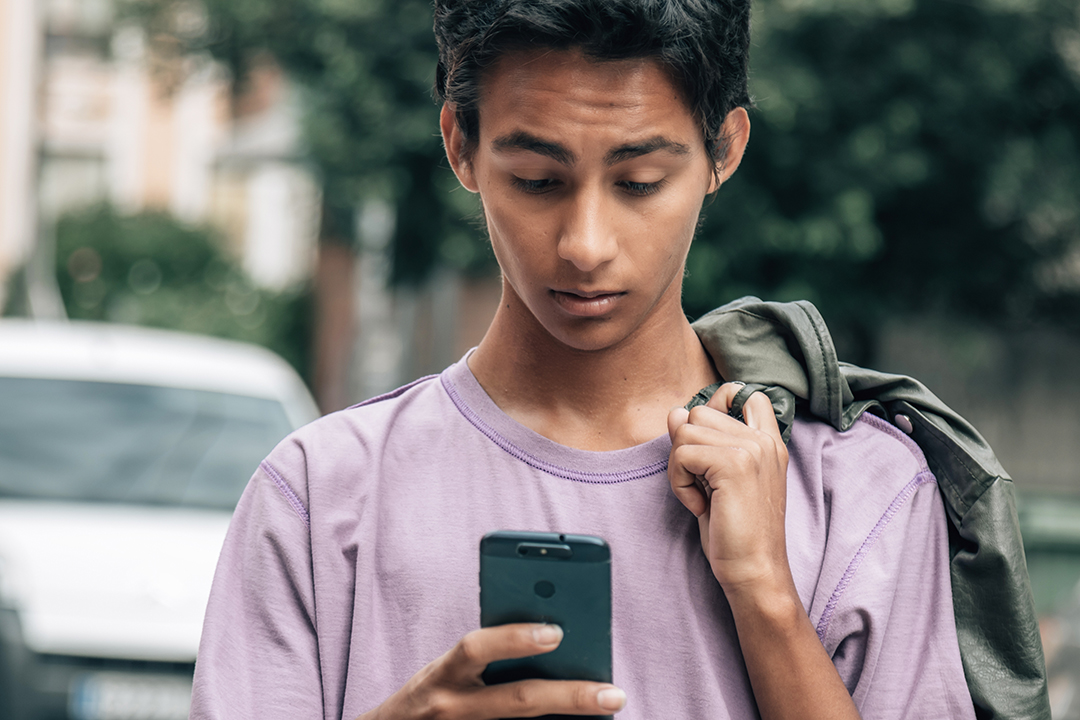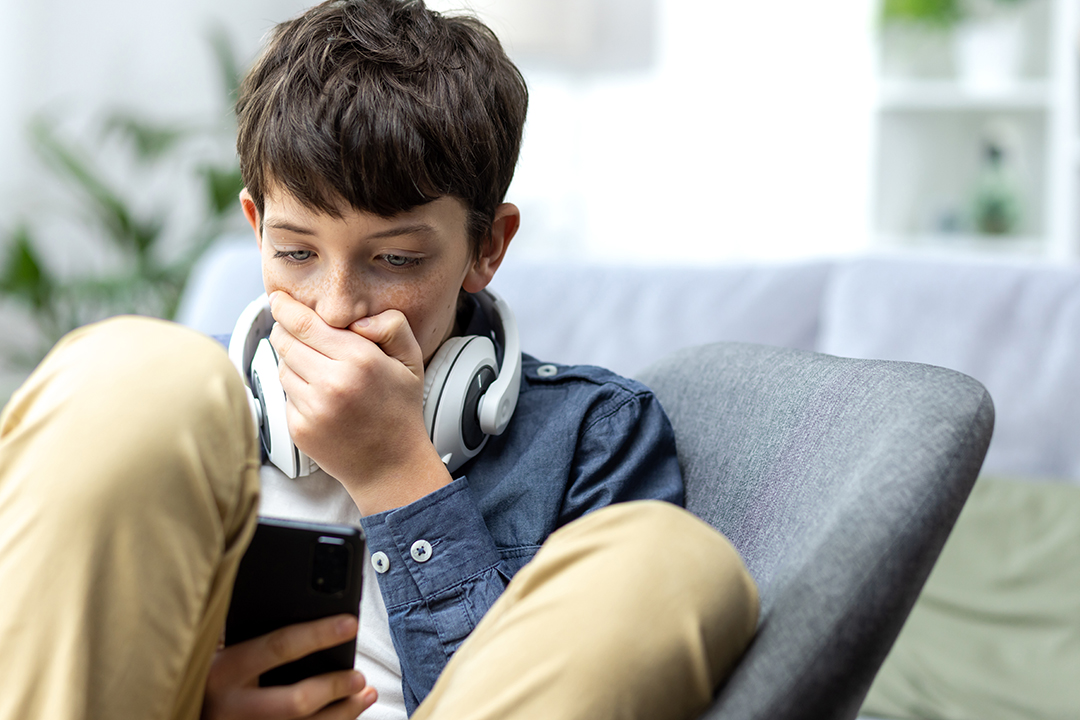Impressed by actual instances, the sequence Adolescence follows a 13-year-old boy arrested for killing a feminine classmate and explores the affect of on-line misogyny on younger folks, sparking social and political debate. Within the UK, practically 70% of boys aged 11–14 have encountered misogynistic content material on-line (Vodafone, 2024). Nevertheless, educational analysis into the drivers and dangers behind the popularisation of such content material amongst adolescents stays restricted.
What’s On-line Misogyny?
Manosphere communities are characterised by inflexible beliefs, distinct lexicons and recruitment mechanisms. They propagate misogynistic rhetoric, externalisation of blame, organic determinism and gender essentialism, usually based mostly on misinformation. Their gender views are stereotypical and conventional, with masculinity outlined by energy, sexual prowess and wealth, whereas girls are depicted as promiscuous, irrational, materialistic, manipulative and in search of so far or marry a associate of upper social standing (Ging D., 2017; Maxwell D. et al, 2020; Over H. et al, 2025a; Regehr Ok. et al, 2024; Solea A.I. & Sugiura L., 2023; Vallerga M. & Zurbriggen E.L., 2022).
Manosphere communities originated primarily in the USA and Canada and are predominantly pushed by males. Some fractions inside these communities have been linked to the alt-right, white nationalist actions, and different types of hate, together with racism and anti-LGBT+ discrimination (Aiolfi I. et al, 2024; Over H. et al, 2025a; Speckhard A. & Ellenberg M., 2022). Though these communities appear to be significantly prevalent in North America and Western Europe, on-line misogyny exists throughout a wide range of communities and international locations, representing a world danger (Procope Bell D., 2023; Speckhard A. & Ellenberg M., 2022; Solar L. & Dai L., 2024; Uzun B. & Tiryaki S., 2024). Feminine-led communities additionally exist, together with the Tradwife motion, which promotes anti-feminist ideologies and inflexible gender roles, romanticising domesticity by means of curated aesthetics (Stotzer R.L. & Nelson A., 2025).

How Do Adolescent Boys Interact with the Manosphere?
Each adolescent girls and boys spend many hours on-line every day. Nevertheless, there are gender variations within the content material they eat, the apps used, and the way they use them (Boniel-Nissim M. et al, 2024; Ofcom, 2023). Boys are additionally extra prone to falsify their age as 18 or over, rising their publicity to dangerous content material (Ofcom, 2024). Boys moreover spend extra time enjoying video video games, with some related chats and boards spreading manosphere content material (Boniel-Nissim M. et al, 2024; Schlegel L., 2021).
Social media is the most typical web use amongst younger folks, and misogynistic content material is now available on mainstream platforms, whereas beforehand it needed to be actively sought (Bertoni E. et al, 2025; Regehr Ok. et al, 2024). Younger males encounter such content material by means of unrelated searches, as AI algorithms amplify excessive materials, and continued use results in more and more misogynistic ideologies (Regehr Ok. et al, 2024; Vodafone, 2024).
On platforms like TikTok, this content material is gamified, introduced as leisure, usually disguised as jokes and delivered in bite-sized chunks. This “micro-dose” impact desensitises viewers and normalises extremist concepts (Regehr Ok. et al, 2024). Manosphere influencers, some with thousands and thousands of followers, amplify this content material whereas cashing in on engagement and promoting merchandise like programs or dietary supplements as options to viewers’ issues (Bujalka E. et al, 2022). In response to Hope not Hate (2023), practically 80% of 16-to-17-year-old British boys consumed content material from

Past the Display: Offline Affect
On-line misogyny is having an offline affect on younger folks’s attitudes, beliefs and interactions. A current ballot discovered that 52% of 16–17-year-old British boys have a optimistic view of Andrew Tate (Hope not Hate, 2023). Dad and mom report their sons are more and more utilizing degrading language when talking about girls and women (Vodafone, 2024). Research within the UK and Australia present that academics are additionally involved, reporting that boys reference misogynistic influencers or actions, make misogynistic feedback, and interact in discriminatory, disrespectful, or harassing behaviour towards feminine workers and friends, negatively impacting studying and academics’ work (Over H. et al, 2025b; Vodafone, 2024; Wescott S. et al, 2023).
Engagement with the manosphere has been linked to incidents of interpersonal and societal violence, together with mass shootings dedicated by people beneath 25 years previous (Hoffman B. et al, 2020; Wooden A. et al, 2022). Conventional gender position attitudes, promoted throughout the manosphere, are additionally linked to a better danger of relationship violence perpetration amongst adolescent boys (Reyes H.L. et al, 2016). Not solely do some people within the manosphere have a historical past of violence in opposition to girls, however such violence is usually normalised and even inspired (Aiolfi I. et al, 2024).
Poor psychological well being has been reported amongst members of the manosphere, together with circumstances akin to melancholy, anxiousness and autism. Loneliness, social rejection, hopelessness, suicide and self-harm are additionally generally mentioned themes inside these communities. Nevertheless, psychological well being care is seen with stigma, disappointment and cynicism (Delaney T.W. et al, 2024; Maxwell D. et al, 2020; Over H. et al, 2025a; Speckhard A. & Ellenberg M., 2022; Stijelja S. & Mishara B.L., 2022; Vallerga M. & Zurbriggen E.L., 2022). Latest analysis means that preliminary on-line searches associated to psychological well being, loneliness, relationship recommendation or a seek for belonging can push younger folks towards misogynistic content material (Regehr Ok. et al, 2024). Though these communities might provide a way of belonging and shared hardship, this could come on the expense of adaptive coping mechanisms and should worsen psychological well being (Speckhard A. & Ellenberg M., 2022).
Analysis targeted on adolescents is proscribed, however current proof means that on-line misogyny negatively impacts their psychological well being. In a UK survey, 66% of 11–14-year-old boys reported that viewing misogynistic content material on-line made them really feel frightened, unhappy or scared (Vodafone, 2024). Lecturers have additionally reported that male pupils’ engagement with the manosphere, and their subsequent behaviour, harms feminine pupils’ well-being, vanity and engagement, and is related to depressive signs and work-related stress amongst feminine academics (Over H. et al, 2025a, 2025b). Given the distinctive traits of ‘the teenage mind’, the developmental context ought to be thought-about when researching adolescents’ consumption of on-line misogyny, in addition to when designing interventions and insurance policies (Gilmour J. 2025).

Implications for Coverage and Follow
Given adolescents’ rising publicity to on-line misogyny and its related harms, pressing instructional and coverage measures are wanted, tailor-made to particular contexts, together with:
- Laws to make sure on-line platforms are secure by design for younger folks, prioritising their well-being in product improvement. This consists of regulating social media providers, holding corporations accountable, and imposing age-appropriate restrictions.
- Integrating digital literacy into the varsity curriculum to advertise crucial eager about on-line content material, recognise harms and resist radicalisation.
- Elevating consciousness amongst dad and mom and carers about on-line dangers, serving to them establish problematic patterns in their very own on-line behaviour and assist their youngsters’s digital exercise.
- Involving younger folks in shaping digital laws and guidelines, encouraging peer-to-peer studying and optimistic position fashions, whereas guaranteeing display screen time doesn’t substitute important actions like social interplay, bodily play, and sleep.
- Investing in analysis on the hyperlinks between on-line misogyny and adolescent psychological well being, together with amongst particular subgroups, and throughout totally different international locations and communities; different types of on-line gender-based hurt; the effectiveness of interventions and insurance policies; and causal relationships, utilizing longitudinal designs.
- Elevating consciousness of dependable, skilled assist teams and helplines amongst adolescent boys.

NB This weblog has been peer reviewed
References
Aiolfi, I., Palena, N., Ó Ciardha, C., and Caso, L. (2024). The incel phenomenon: A scientific scoping overview. Present Psychology, 43(32), 26264-26278. https://doi.org/10.1007/s12144-024-06236-6
Bertoni, E., Centeno, C., and Cachia, R. (2025). Social media utilization and adolescents’ psychological well being within the EU. (JRC141047).
Boniel-Nissim, M., Marino, C., Galeotti, T., Blinka, L., Ozoliņa, Ok., Craig, W., Lahti, H., Wong, S. L., Brown, J., Wilson, M., Inchley, J., and van den Eijnden, R. (2024). A concentrate on adolescent social media use and gaming in Europe, central Asia and Canada. Well being Behaviour in Faculty-aged Kids worldwide report from the 2021/2022 survey.
Bujalka, E., Wealthy, T., and Bender, S. (2022). The Manosphere as an On-line Safety Racket: How the Purple Capsule Monetizes Male Want for Safety in Trendy Society. Quick Capitalism, 19(1), 1-16. https://doi.org/10.32855/fcapital.202201.001
Delaney, T. W., Pollet, T. V., and Cook dinner, C. (2024). The psychological well-being of involuntary celibates. Character and Particular person Variations, 218. https://doi.org/10.1016/j.paid.2023.112474
Gilmour, J. (2025). Narrative Issues: Adolescence in The Manopshere. An ideal storm? Youngster and Adolescent Psychological Well being.
Ging, D. (2017). Alphas, Betas, and Incels: Theorizing the Masculinities of the Manosphere. Males and Masculinities, 22(4), 638-657. https://doi.org/10.1177/1097184×17706401
Hoffman, B., Ware, J., and Shapiro, E. (2020). Assessing the specter of incel violence. Research in Battle and Terrorism, 43(7), 565-587. https://doi.org/https://doi.org/10.1080/1057610X.2020.1751459
Hope not Hate. (2023). State of Hate 2023 – Rhetoric, Racism and Resentment.
Horta Ribeiro, M., Blackburn, J., Bradlyn, B., De Cristofaro, E., Stringhini, G., Lengthy, S., Greenberg, S., and Zannettou, S. (2021). The Evolution of the Manosphere throughout the Net. Proceedings of the Worldwide AAAI Convention on Net and Social Media, 15, 196-207. https://doi.org/10.1609/icwsm.v15i1.18053
Maxwell, D., Robinson, S. R., Williams, J. R., and Keaton, C. (2020). “A Brief Story of a Lonely Man”: A Qualitative Thematic Evaluation of Involuntary Celibacy Utilizing Reddit. Sexuality & Tradition, 24(6), 1852-1874. https://doi.org/10.1007/s12119-020-09724-6
Ofcom. (2023). Kids and Dad and mom: Media Use and Attitudes
Ofcom. (2024). On-line Nation 2024 Report.
Ofcom. (2025). A safer life on-line for girls and women Sensible steering for tech corporations.
Over, H., Bunce, C., Baggaley, J., and Zendle, D. (2025a). Understanding the affect of on-line M misogyny in faculties from the angle of academics. . PLoS One, 20(2), e0299339. https://doi.org/10.1371/journal.pone.0299339
Over, H., Bunce, C., Konu, D., and Zendle, D. (2025b). Editorial Perspective: What do we have to know concerning the manosphere and younger folks’s psychological well being? Youngster Adolesc Ment Well being. https://doi.org/10.1111/camh.12747
Park, J.S., Seering, J., and Bernstein, M.S. (2022). Measuring the prevalence of anti-social habits in on-line communities. Proceedings of the ACM on Human-Pc Interplay, 6(CSCW2), 1-29.
Procope Bell, D. (2023). “Decide-Me” Black girls: tactical patriarchal femininity within the Black manosphere. Feminist Media Research, 24(8), 1704-1722. https://doi.org/10.1080/14680777.2023.2262163
Regehr, Ok., Shaughnessy, C., Zhao, M., and Shaughnessy, N. (2024). SAFER SCROLLING – How algorithms popularise and gamify on-line hate and misogyny for younger folks.
Henley, J., Sinmaz E., and Luscombe, R. (2025). Andrew Tate and brother land in US from Romania after journey ban lifted. The Guardian. https://www.theguardian.com/information/2025/feb/27/andrew-tate-tristan-romania-us
Reyes, H. L., Foshee, V. A., Niolon, P. H., Reidy, D. E., and Corridor, J. E. (2016). Gender Position Attitudes and Male Adolescent Relationship Violence Perpetration: Normative Beliefs as Moderators. J Youth Adolesc, 45(2), 350-360. https://doi.org/10.1007/s10964-015-0278-0
Schlegel, L. (2021). Extremists’ use of gaming (adjoining) platforms – Insights relating to main and secondary prevention measures.
Solea, A. I., and Sugiura, L. (2023). Mainstreaming the Blackpill: Understanding the Incel Neighborhood on TikTok. European Journal on Felony Coverage and Analysis, 29(3), 311-336. https://doi.org/10.1007/s10610-023-09559-5
Speckhard, A., and Ellenberg, M. (2022). Self-reported psychiatric dysfunction and perceived psychological symptom charges amongst involuntary celibates (incels) and their perceptions of psychological well being therapy. Behavioral Sciences of Terrorism and Political Aggression, 1-18. https://doi.org/10.1080/19434472.2022.2029933
Stijelja, S., and Mishara, B. L. (2022). Psychosocial Traits of Involuntary Celibates (Incels): A Assessment of Empirical Analysis and Evaluation of the Potential Implications of Analysis on Grownup Virginity and Late Sexual Onset. Sexuality & Tradition, 27(2), 715-734. https://doi.org/10.1007/s12119-022-10031-5
Stotzer, R. L., and Nelson, A. (2025). The (Anti)Feminism of Tradwives. Terrorism and political violence, 1-14. https://doi.org/10.1080/09546553.2025.2463588
Solar, L., and Dai, L. (2024). Welcome to this Courageous Bro’s World: the (Re)manufacturing of hegemonic masculinity in a Chinese language manosphere. Feminist Media Research, 1-16. https://doi.org/10.1080/14680777.2024.2400488
Uzun, B., and Tiryaki, S. (2024). The development of hegemonic masculinity and misogyny by Turkish Incels on YouTube. Gender, Know-how and Growth, 28(3), 428–445. https://doi.org/10.1080/09718524.2024.2393988
Vallerga, M., and Zurbriggen, E. L. (2022). Hegemonic masculinities within the ‘Manosphere’: A thematic evaluation of beliefs about women and men on The Purple Capsule and Incel. Analyses of Social Points and Public Coverage, 22(2), 602-625. https://doi.org/10.1111/asap.12308
Vodafone. (2024). AI ‘Aggro-rithms’: younger boys are served dangerous content material inside 60 seconds of being on-line https://www.vodafone.co.uk/newscentre/press-release/ai-aggro-rithms/
Wescott, S., Roberts, S., and Zhao, X. (2023). The issue of anti-feminist ‘manfluencer’ Andrew Tate in Australian faculties: girls academics’ experiences of resurgent male supremacy. Gender and Schooling, 36(2), 167-182. https://doi.org/10.1080/09540253.2023.2292622
Wooden, A., Tanteckchi, P., and Keatley, D. A. (2022). A Crime Script Evaluation of Involuntary Celibate (INCEL) Mass Murderers. Research in Battle & Terrorism, 47(10), 1329-1341. https://doi.org/10.1080/1057610x.2022.2037630
Yesilada, M., and Lewandowsky, S. (2022). Systematic overview: YouTube suggestions and problematic content material. Web coverage overview, 11(1), 1652. https://doi.org/10.14763/2022.1.1652


